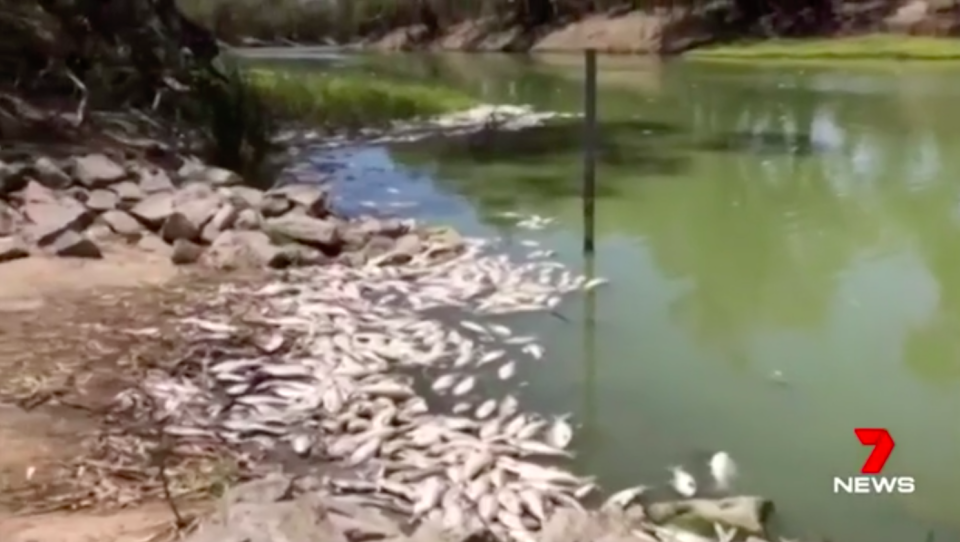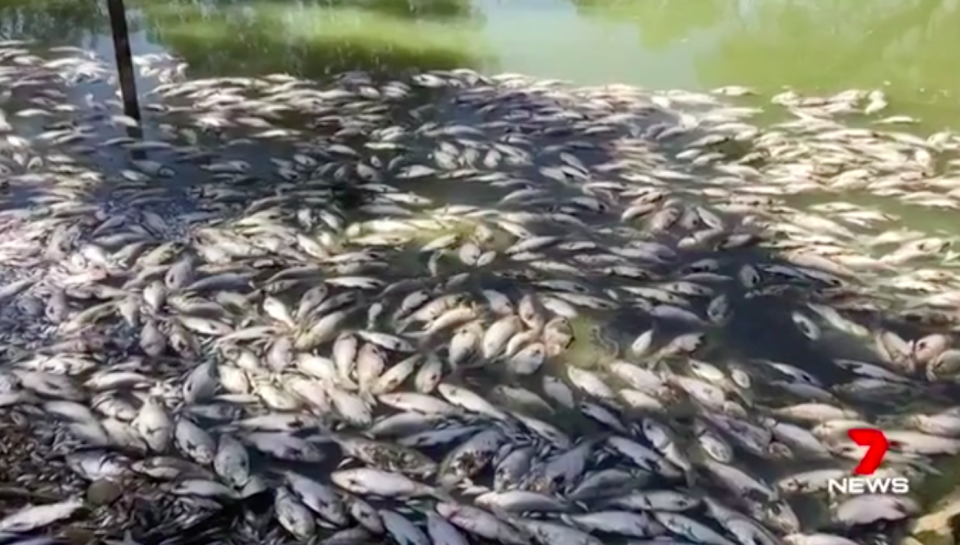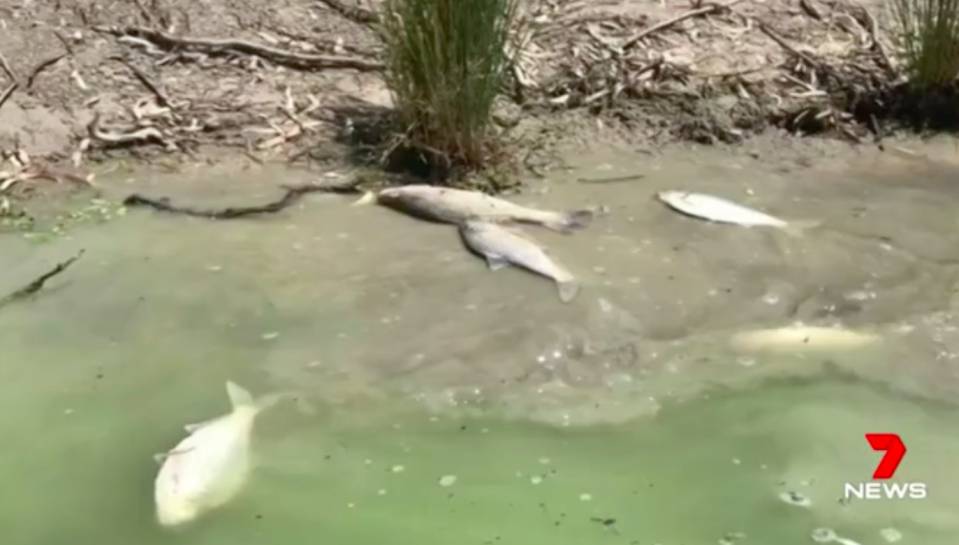Thousands of fish wash up dead along drought-hit rivers
There is an ecological disaster unfolding in NSW’s far west with thousands of fish washing up dead along drought hit rivers with countless more expected to die.
Authorities arrived on Monday to investigate the Darling River at Menindee with furious locals blaming them for water mismanagement.
“There’s been a stack die overnight,” one resident revealed.
Both natives and introduced carp are dying in huge numbers – with still others to join them.

Locals have documented the fish kill through a series of alarming videos, with Water NSW teams arriving to the site on Monday afternoon.
The team is assessing the damage said to be caused by low water levels from two years of drought combined with temperatures in the 40s and algae.
“The water temperature is much higher, the dissolved oxygen levels drop off in the water, and therefore that puts a lot of stress on the fish,” Water NSW’s Adrian Langdon said.

The Menindee fish kill is the fourth in succession with another occurring last year.
Thousands of fish have also washed up on the Lachlan River at Wyangala Dam and the Namoi near Gunnedah just before Christmas.
“And we may see more as a result of this drought,” Fisheries Minister Niall Blair admitted.

Normally, the department would flush water downstream to save the fish, however unlike in areas such as Sydney, there’s been no rain in the bush, and therefore no water in storage to do so.
“It may have rained in Sydney, the Test may have had to be called off because of the weather, but our farmers need the rain, our regional communities need the rain, and our environment needs the rain,” Mr Blair said.


